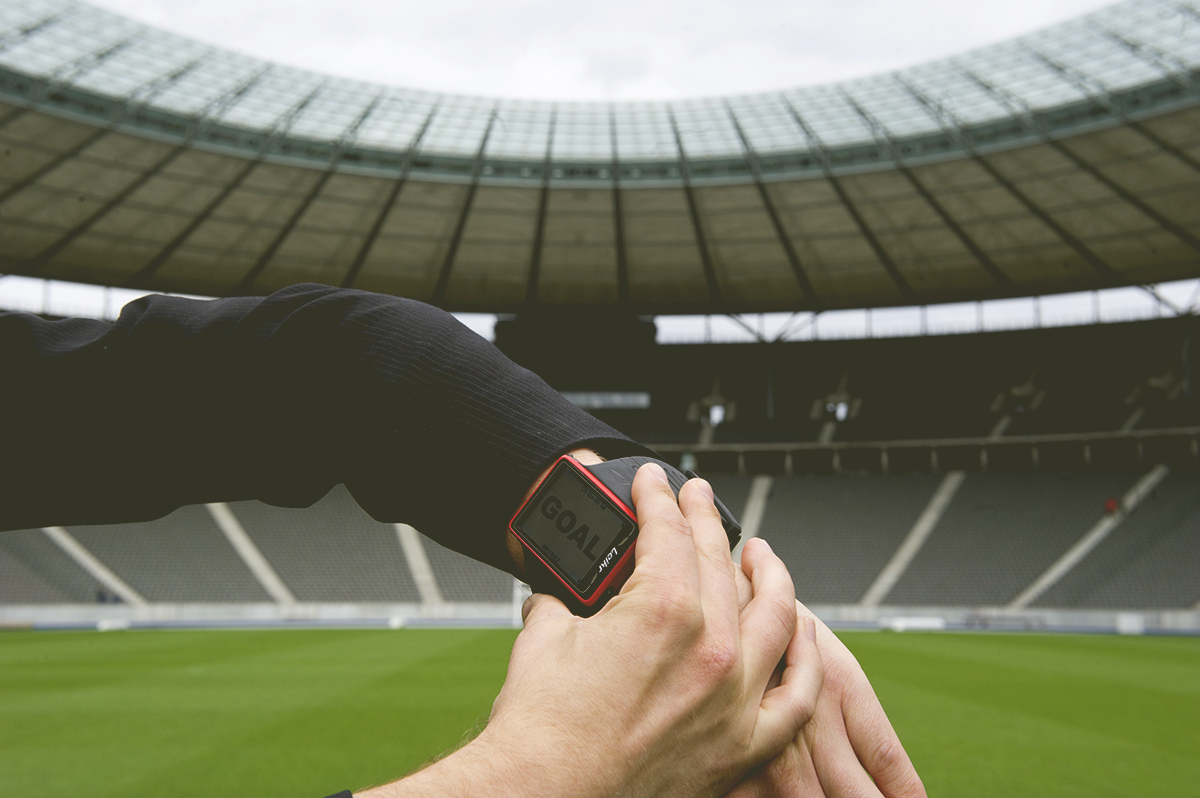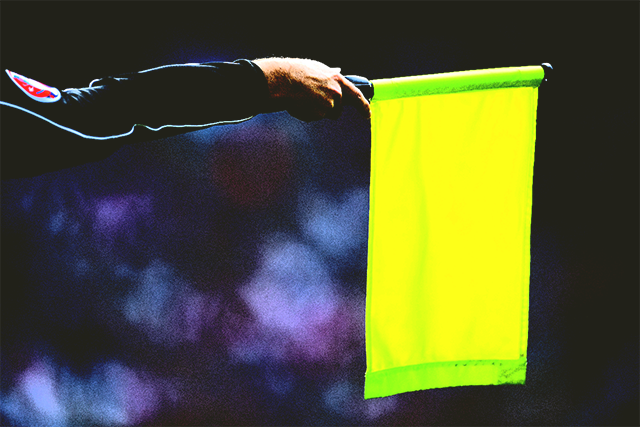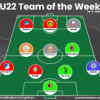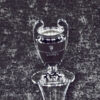
Liam Bekker interviews Former World Cup referee and current coach of referees, Dr. Errol Sweeney, about the 2016-17 rule changes.
The International Football Association Board (IFAB) earlier in the year released the rule changes for the 2016-17 football campaign. The body, responsible for the creation and amendment of the laws of the game have revised a number of existing rules and introduced a handful more with the intention of improving the sport. The latest alterations cover various aspects of the game, ranging from pre-match dismissals and on-field treatment to the denial of clear goal scoring opportunities. A large number of these changes are already in effect and have been on display at the 2016 Copa América and European Championships.

Former World Cup referee and current coach of referees, Dr. Errol Sweeney recently took time out to discuss the impending changes with OOTB and shared his insight into the implications they might have.
PRE MATCH DISMISSALS
The opening topic on the agenda is that of pre-match dismissals. The IFAB cited the infamous altercation between Roy Keane and Patrick Vieira as one of the reasons behind adapting the rules in this regard. The pair came together in the tunnel during a match at Highbury in 2005 but their actions, which amounted to violent conduct, drew no sanction from referee Graham Poll. Under the old rules even if Keane and Vieira had been sent off, their respective clubs would still have been allowed to start the match with eleven players. This is because the previous wording of the laws allowed for a player, dismissed in the build up to a match, to be replaced by another player named as a substitute. Such leniency is no longer allowed under the latest modification and players sent off anytime between the pre-match inspection and kick-off will now see their team take to the field with only ten men.
Dr. Sweeney informed us further that the commission of “any offence contained in rule 12 under violent conduct would warrant such a dismissal, included in which is the use of verbal and/or foul or abusive language or actions.”
ON-FIELD TREATMENT
Another development is that players no longer need to leave the field of play for treatment when an injury is caused by the offence of another player for which that player is cautioned. The allowance of on-field treatment sounds similar to that in effect in Rugby but differs in that play is not allowed to go on around the injured player. Dr. Sweeney stresses that “play cannot not, and should not go on while a player is lying genuinely injured on the park. It has to be stopped to attend to the player.”

The wording of the section also makes it appear that on-field treatment is only permitted as a result of so-called contact injuries and perhaps not in instances of muscular trauma. This is not the case according to Dr. Sweeney who indicates that the rule makes provision for treatment whenever a player is genuinely injured, whether such comes about through contact or otherwise.
FEINTING
A topic which garnered much debate on social media following IFAB’s announcement was the banning of feinting when taking penalty. Players are now no longer permitted to stop just before striking the ball when lining up from the six-yard mark. The stop-start action is deemed to give the penalty-taker an unfair advantage and has thus been rooted out, a ruling which Dr. Sweeney completely agrees with: “I do believe feinting gives the kicker an unfair advantage and I’m glad that it’s now about to become illegal.”
GOAL-LINE AND VIDEO TECHNOLOGY
As a supplement to the rule changes the IFAB will be introducing a two-year video technology trial in Italy from next season, with an eye on goals scored, red cards, penalties and mistaken identity. The prospect of the introduction of video technology is one which has torn supporters down the middle. All are in favour of having the correct decisions made but there is an overwhelming fear that it may have a negative effect on the flow of the game.

Dr. Sweeney himself is in favour of the implementation of video technology and dismisses these fears, arguing that “it would only be used in certain circumstances [those mentioned above], will also highlight the cheating that is going on and expose those cheaters and divers for all to see.”
DISCRETION AND THE ROLE OF REFEREES
The influence of the match officials is set to dramatically increase with the wording of a number of the rules leave decision making to the discretion of the referee and his assistants.
One such rule is that an official may now award a free-kick or penalty if a substitute/team official/sent off player interferes with play. An example of such interference can be drawn from Atletico Madrid’s clash with Malaga at the back end of the La Liga season. During the match, Atleti manager Diego Simeone seemingly gave the instruction to a member of his bench to throw a second ball on the field causing play to stop, thereby resulting in Malaga’s counter-attack being broken up. Whether the referee opts to award a free-kick or a penalty is influenced by field position and the nature of the offence committed. Dr. Sweeney is concerned with the wording of the law as it gives no clear instruction to the officials, merely stipulating that a ref may award a free-kick or penalty. Nonetheless, Dr. Sweeny provides that the factors to consider when deciding whether to award a free-kick or penalty are the “level of interference and where the ball was when the offence occurred,” both of which are discretionary evaluations.
The so-called ‘Last-Man Rule’ has been a topic of debate for football supporters for many years. However, the general understanding that a foul on the last man always amounts to a straight red is slightly misinformed. Dr. Sweeney stresses that “there is no mention of the ‘last man.’ The law says denying an obvious goal-scoring opportunity is a red card – period.” That said, under IFAB’s new amendments it appears that in instances where a player has denied an obvious goal scoring opportunity but made a genuine attempt for the ball, he will only be cautioned and not dismissed. Once more, such a determination rests with the discretion of the referee.
Indeed, referees are often the centre of attention and more often than not for the wrong reasons. While the laws are imperfect there is enough of a foundation for the rules to be applied fairly and properly. In this regard Dr. Sweeney has a strong message. “Refereeing discretion must remain. My problem is that certain referees are downright cowards and are unable or unwilling to make those crucial, clear, and sometimes very obvious decisions for fear of a backlash from players, managers/coaches, or club officials. We are the guardians of the game. We are mere arbitrators whose job it is to apply the FIFA Laws of the Game in a fair and unbiased way regardless of who is playing or the competition involved. When we deviate from those laws we create a stick for the general public to beat us with. If referees stick to the laws they cannot be blamed for teams winning or losing. I’ve been lambasted for criticizing referees. My answer is – I don’t criticize them for what they ARE doing. I criticize them for what they ARE NOT doing.”
It is apt to end with a statement from FIFA themselves on the law changes, in which they stressed on their website that “the expectation is not to achieve 100 per cent accuracy in decisions for every single incident, but to avoid clearly incorrect decisions that are pre-defined ‘game-changing’ situations – goals, penalty decisions, direct red card incidents and mistaken identity.”
Be sure to follow Dr. Sweeney on Twitter @dr_errol
A full copy of the Laws for 2016-17 can be found here: http://www.fifa.com/mm/Document/FootballDevelopment/Refereeing/02/79/92/44/Laws.of.the.Game.2016.2017_Neutral.pdf
Written by Liam Bekker
- 2016-17 Rule Changes: An interview with Dr. Errol Sweeney - July 6, 2016
- Scout Report | Stephane Sparagna: Marseille’s combative young centre-back - December 22, 2015
- Remember the name: Goal scoring machine, Ruud van Nistelrooy - July 6, 2015
























































